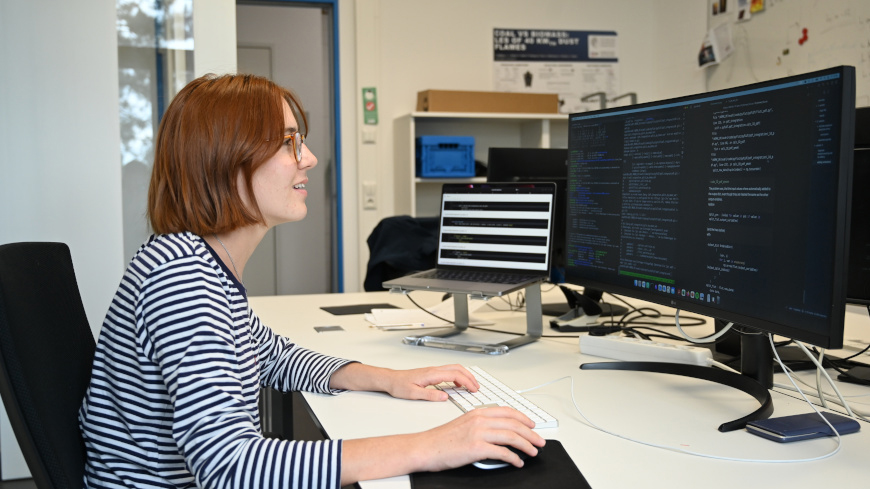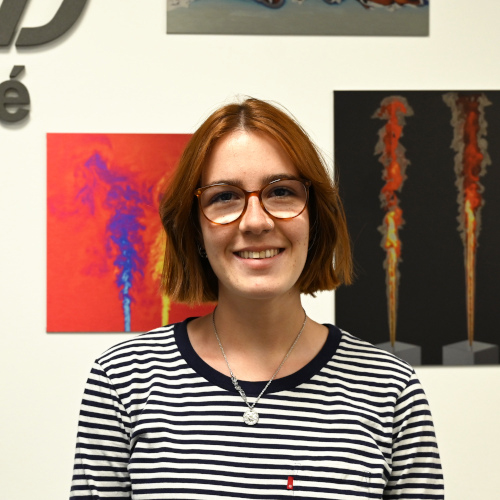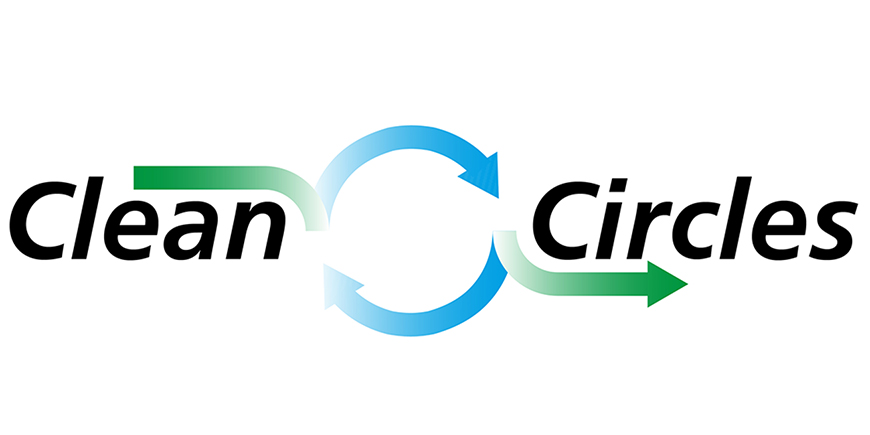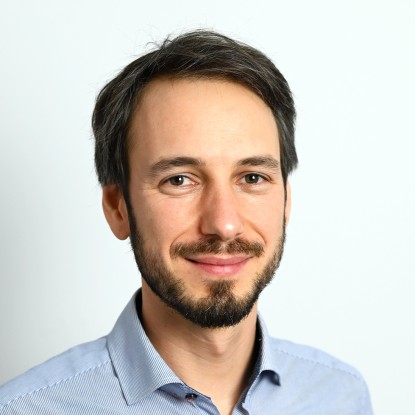Direct Track students interviewed (2/2)
Antonia Bähr, Department of Mechanical Engineering
2024/09/12
The Clean Circles Direct Track Programme is aimed at female Bachelor students who would like to do a doctorate on topics in the field of energy research or energy transition. During a two-year Master's phase, they are supported by mentors and prepared for the doctoral phase in the Clean Circles project. Here we introduce some of the new students.

Antonia Bähr
Subject: Mechanical Engineering
Entry into programme: Winter semester 2023/24
Mentor: Prof. Christian Hasse
Dear Antonia, you are studying Mechanical Engineering in your first semester, how did this come about? When was studying mechanical engineering an option for you?
During secondary school, I already knew that I wanted to do something mechanical/scientific. I chose mechanical engineering because of the practical fields of application that you could learn here in the Bachelor's program. It was also important for me to incorporate the idea of sustainability into my studies and, if possible, into my career. I think this is possible with a Master's degree in Mechanical Engineering with a focus on clean energy.
Which research projects or specializations in mechanical engineering are you particularly interested in and why?
As already mentioned, I am interested in topics related to sustainable energies and technologies because they have a strong impact on our environment and thus on our lives. I am also interested in fluid mechanics, i.e. both the physical description and the mathematical representation in simulation models.
Antonia Bähr,
Direct-Track student since winter semester 2023/24
The Direct Track programme is a great opportunity to gain an insight into research and the possible tasks of a doctoral student during your Master's degree.

How did you find out about the Direct Track program? Why did you apply for it?
I was made aware of it by my supervisors during my Bachelor's thesis at STFS. I see the program as a great opportunity to gain insights into research and the possible tasks of a doctoral student during my Master's degree. In addition, the support from Prof. Hasse and the program helps with the design of the curriculum or stays abroad with a new perspective that you may not yet have yourself.
Have you had the opportunity to immerse yourself in Clean Circles research? What did you do there?
Yes, I worked as a student assistant for a PhD student in Clean Circles for a year and a half until the end of May. She is developing a simulation model for the combustion of an iron particle in OpenFOAM. I helped her to incorporate individual models or boundary conditions into the code and then test them.
What is your personal connection to energy research or the energy transition?
It's important to me to find a job now and in the future where I can contribute to making our world a better place to live. A rapid and, above all, sustainable energy transition is very important for this. However, as I see my strengths more in the technical field, I would like to try to use them here for a sustainable and climate-friendly world.

